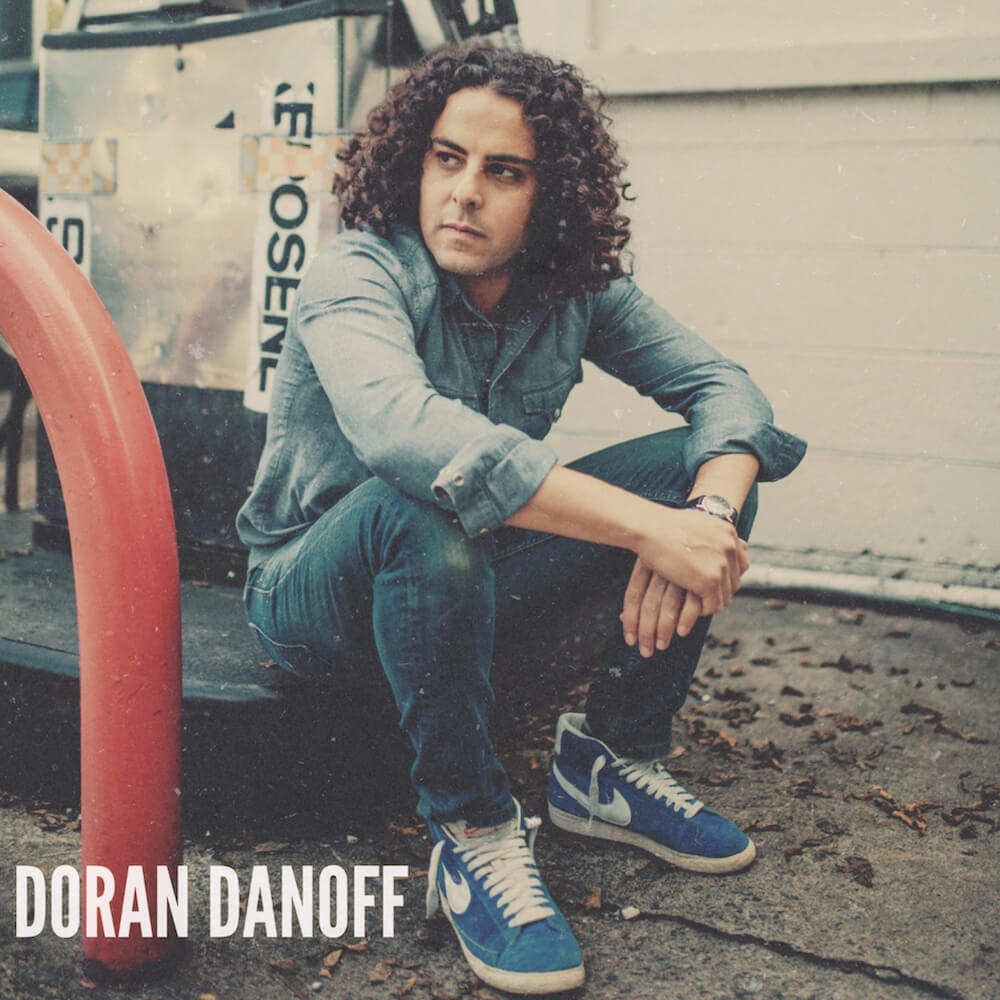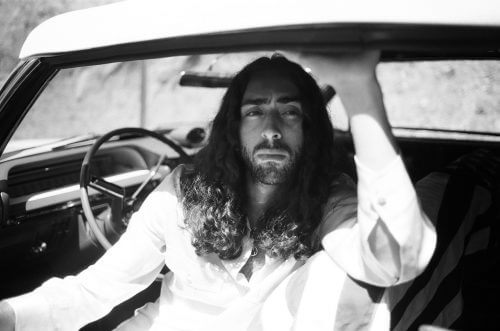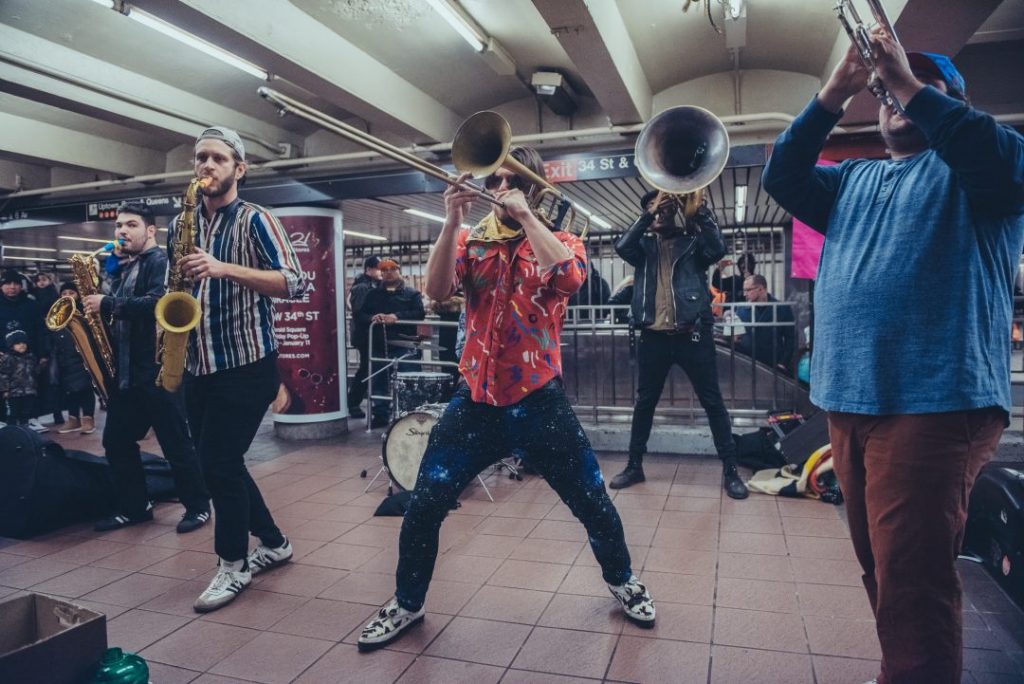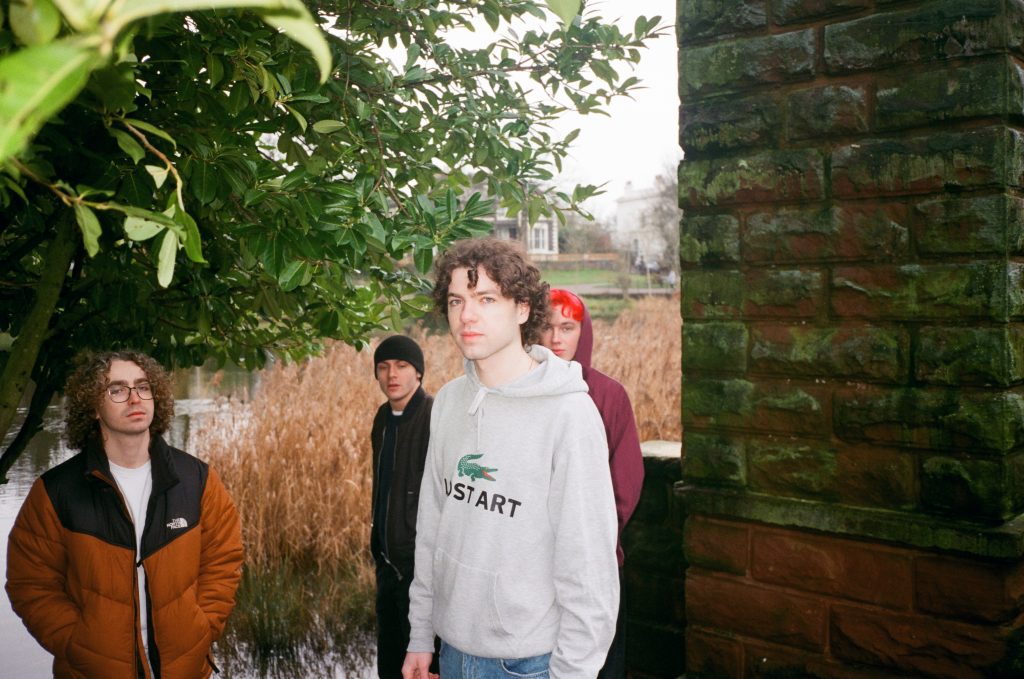Delving Deep with Peter Cat: The Saccharine Underground

In this deep delve, Peter Cat recounts aspects of the album-making process, what he does to prepare before a studio session, what’s off-limits when it comes to writing music, and much more. You can stream the album from November 6th on all music platforms.
More poetic tracks like, ‘Hand Through Hair’ and ‘Disappointing Lover’ carry a resounding honesty lyrically and in his deep baritone voice that rejoice when met with the sanguine music. Overall, The Saccharine Underground sounds and feels like it should be accompanied by a dance party attended by free spirits moving and gesticulating to the sounds and words.
What is the story behind your stage name ‘Peter Cat’?
As a socially anxious, bookish teenager, I was somewhat obsessed with the Japanese author Haruki Murakami. You know, the one with the jazz and the talking cats and where every protagonist is pretty much the same dude with a slightly different name. Before he became a writer, he and his wife opened a jazz bar in Tokyo. They would work there during the day and he would write his first novels in the back room at night. The bar they opened was called Peter Cat, and after finding that out, I bookmarked it for use as a band name at some unspecified point in the future.
 Courtesy of the artist
Courtesy of the artist
While my white-hot reverence for Murakami may have cooled slightly over the years, I still have a nostalgic fondness for his novels, and I love to dip back in now and again. The way he’s able to convince you of the existence of a parallel universe sitting alongside our own, seemingly mundane yet ultimately unknowable, really appealed to me as an alienated young suburbanite.
Your upcoming album ‘THE SACCHARINE UNDERGROUND’, interesting name. How did it come about? Tell me a little bit about what inspired the album. What was the first song you wrote for it?
‘Saccharine Underground’ was a genre of pop music back in the late 60s and early 70s, also known as ‘cowboy psychedelia’. Lee Hazelwood and Nancy Sinatra’s duet on ‘Some Velvet Morning’ is the definitive example: on the surface, it’s epic, melodic Americana, all rollin’ hills and deep canyons, but underneath it you can hear this washed-out, ghostly quality; a yearning to return to a mythical past that never really existed.
I nicked it for the title of the record as it embodies the bittersweet duality I was trying to convey, and the dissonance between the musical and lyrical content. Instrumentally, The Saccharine Underground is a quite self-consciously retro pop and rock album, upbeat and driving, with softer moments interspersed throughout. But lyrically, there’s always some pain, something vitally important that’s missing or unresolved, or some desire going unsatisfied. I’ve always habitually written those sorts of lyrics. It’s lack that interests me, rather than fulfillment, I suppose.
The first song I wrote for the record was the opening track, ‘The Big House’. It must be five years old by now! It was inspired by a very surreal evening I had back when I was living in London. I ended up at this ludicrous party in Tooting, which I think is only in Zone 3 but which felt like the sticks at the time. The hosts – a pretty popular indie band nowadays – were semi-squatting in this abandoned pub. Their ‘front room’ had a horseshoe bar right through the middle of it, and friends of theirs were just camping out in various tents and sleeping bags, including their manager. Some of them had been there for weeks, I think. Coming from bland suburban nothingness in the west of Scotland, I found this sort of milieu, and these characters, to be quite inspirational, if not a little terrifying. Not long after, I wrote ‘The Big House’ as an ode to my bohemian initiation.
I’ve surprised myself in that I’ve been rather productive! I’ve written a full album’s worth of material during lockdown, or half traditional album, half musical theatre – a ‘popopera’, if you like. Sounds terrible, doesn’t it? It’s called ‘Don Sequitur’, and you could say it’s a concept record about always saying the wrong thing. Or, if you do think of the right thing to say, you always think of it too late. ‘L’esprit de l’escalier’, they call it in French – ‘spirit of the staircase’, because the perfect line only pops into your head once you’re halfway down the stairs to leave. I’m already planning to record ‘Don Sequitur’ properly as remotely as possible and release it as the follow-up to The Saccharine Underground.
Although lockdown has afforded me more time to write music, the downside is the absence of any fresh personal experiences to write lyrics about. Although in many ways I’m a classic introvert, I’m still a big believer in Leonard Cohen’s philosophy that “if your life is burning well, poetry is just the ash.” Having hardly seen, listened to or communed with anyone besides my partner and my cat for half a year now, I’m perilously low on ash.
Which part of the album-making process do you enjoy or look forward to the most? Are there any parts that are daunting to you?
Getting the right vocal take is still very daunting to me. I’m not naturally a singer, by any means. It’s taken several years of YouTube tutorials and diaphragm exercises just to get to this stage! If I’m going into the studio to sing, I need to have done all the right warm-ups, otherwise the results won’t be pretty. I’m not enough of a diva to demand ‘mood lighting’, but I will heavily imply my preference for it. A ‘hot toddy’ always helps, too: that’s hot water, lemon juice, honey and whisky. Frank Sinatra swore by them. I worry that I put more whisky in mine even than Frank did.
The parts of the album-making process I look forward to the most are when I get to work with other musicians. While Peter Cat had expanded to a four-piece band in the year prior to lockdown, it’s historically been a solo project, which can get repetitive; boring, even! There’s nothing in the world to top the energy of playing music with other people in the same room, coasting the same wave. I was fortunate enough to have two good pals of mine as the rhythm section on this record. We tracked bass, drums and rhythm guitar live in a tiny studio together. When you finally get ‘the take’ and you all know you’ve gotten it, it’s a great buzz.
https://www.youtube.com/watch?v=oI61TAzKa74&ab_channel=PeterCat
If you could pick only one song on the album that captures the essence of the album, which song would it be?
A challenging question! Although everything’s informed by personal experience, many of the songs are written from perspectives other than my own, and even those that veer closer to my own point of view are exaggerated for humorous or pitiable effect. So it’s tough to pinpoint one song as a summation of the record as a whole.
I would have to plump for ‘If You Can’t Live Without Me’, as it talks about how to grow out of the kind of navel-gazing, self-pitying maleness that’s on display in some of the other tracks. It’s written from the perspective of someone with whom you’ve been in love, but who you have ultimately driven away, because you’ve put them on a pedestal one too many times. It’s talking back to the type of person – the type of man, really – who does that, who would tell their partner that they can’t live without them, that they’d die without them. That’s not love, that’s holding someone hostage! It’s a more mature song, where some of the others are (purposely) immature. In that sense, it’s a necessary counterpoint to some of the other perspectives expressed on the record.
How has your music evolved from the first track you’ve ever released to the songs in THE SACCHARINE UNDERGROUND?
My music has certainly become more palatable over time. The first EP I ever released is still online, on an old Bandcamp account that I’ve forgotten the login for and so unfortunately can’t erase from existence. It’s quite a cringe-inducing listen!
I used to rely too much on vocab-bombing: cramming as much lyrical content into a song as possible, much of which was far too pretentious for purpose. I’m ashamed to admit that I also used rhymezone.com to find rhymes. Actually, I still do that! Just not as much.
These days, I think I’ve learned how to be more selective; to choose words and phrases with more powerful connotations, multiple connotations, and just let them hang in the air a bit. To not be afraid of the listener taking their own interpretation away from the lyrics. And not to shy away from simplicity and directness when it suits the song.
In your music videos there are almost theatrical elements, performative and visual elements – what is the creative process for making the songs come to life like? How long do you spend/how important is the visualization of the songs to you?
I don’t tend to visualise the songs while writing them, in that way. The visual aspects come after, and they’ll be done in collaboration with other people. With most of the videos, it’s really just been a case of adapting to the situation on the day, making the most of limited time and resources. Raiding local charity shops for odd props and things like that. I’m fortunate enough that visually creative and aesthetically-minded people are interested in working with me!
I do tend to gravitate towards a lo-fi vibe with the videos. Portions of the ‘Disappointing Lover’ were shot on 8mm, and the videos for ‘A.S.M.R.’ and ‘SO STR8’ were both filmed to tape with a Canon Mini DV. Unless you’re working with a serious budget (which I’ve not yet been lucky enough to stumble across), aiming for a high-fidelity look isn’t going to be convincing, so I’m swinging towards the other extreme for now.
Tell me a little bit about some collaborations you’ve done, directors, musicians, instrumentalists, do you like collaborating on some things more than others?
My favourite collaborations on this record were with the strings and brass players: they just lifted the tracks onto a whole new plane. I worked with a phenomenal violinist called Roberto Luquesch. Although I’d written the violin parts, sitting in the room and watching Roberto perform them made me realise how small a part of the whole just hitting the notes is. With that sort of instrument, there are so many more variables – intonation, timbre, all those ineffable quivers and quirks that make up the individual performance. Seeing that sort of talent up close, from my perspective as a self-taught and very much untrained musician, was magical.
Before lockdown, I’d expanded Peter Cat into a four-piece live band, with three other musicians from the Glasgow scene. We were really beginning to gel as a unit by the start of this year, and I sorely miss performing with them! I have been guilty of being a control freak in bands before, so with this line-up, I wanted everyone to have the freedom to interpret the songs with their instrument, and to mould Peter Cat into what they heard and felt. And everyone did, and it was fantastic! I miss performing the vibrant and slightly chaotic versions of the songs we all created together. Oh, for gigs to be back again.

How methodical are you when it comes to the process of making a track?
Extremely! I know it’s the cool thing to say how much you love to improvise, but it still terrifies me. I’m not a good enough musician in my own right. My strengths are in writing, composing and arranging, I think, and those can be Herculean tasks that take me a long time indeed.
Every artist has their own process, and their own analogies for it. For me, songs arrive in a shapeless, formless way; I’ll feel them before I’ll hear them. It’s my job to chip away at the marble for as long as it takes to create the sculpture. Or to carve away at the wood for as long as it takes to make the chair. I’m more comfortable with craft metaphors: they seem more relatable, somehow.
What music are you listening to right now? How important is consumption to your creativity?
I wouldn’t say consumption is particularly important to my creativity. I sometimes feel that if I was locked in a windowless room for a year with no internet or record player, I’d end up writing much the same material as I would otherwise! That’s a naïve thing to say, though. We’re always taking things in, consciously or unconsciously, and are influenced by both to varying degrees.
I’m instinctively drawn towards left-field pop and indie artists who have that flavour of the solipsistic auteur about them; like they spend 90% of their time in their own heads. I listen to a lot of John Grant, Aldous Harding, Perfume Genius, Julia Holter, others like that. I’m also fond of detouring into darker and groovier electronic music. Like KiCk i that Arca brought out this year, that’s a really rewarding listen. As is Heaven To A Tortured Mind by Yves Tumor, I’ve played that a tonne recently, it’s great.
Your lyrics are very honest, in your song Disappointing Lover “you’ve been a disappointing lover and you never can forget” and another song I Don’t Want To Come Back To You, “with just a word you could break me in two like a flower in your thin arms” – this is very refreshing. Do you ever get nervous about putting such honest tracks out?
The trick is to convince yourself that no-one’s ever going to listen to them: that makes it a lot easier! And it’s mostly true. I do hear people say similar things; that they find an honesty in the songs that’s disarming, perhaps a little uncomfortable. All I can say is that it’s what comes naturally. I’ve tried writing in more obtuse and abstract ways before, but I just felt pointlessly euphemistic, like I was dancing around what I was trying to say, rather than just coming out and saying it. I don’t particularly need that kind of armour.
With ‘Disappointing Lover’, I thought, you know, there really aren’t that many pop songs out there about premature ejaculation. And yet it happens to a lot of us from time to time! Why be so wary of talking about it? I’d had a bad run of it around then, I think. Funnily enough, things improved greatly in that department shortly after writing the song, so it must have had a cathartic effect.
Living, growing up and performing in Glasgow, has anyone you’ve written about reacted to your songs? How did they react?
I believe I’ve managed to keep the identities of those I’ve written about secret, or if not, they haven’t yet made their opinions known! Most of these songs were actually written about people and experiences I had living in London, while I was down there for uni. It wasn’t until I settled back in Glasgow that I started to share and perform those songs. There’s truth in the idea that you have to move away from a place before you can get the perspective you need to write authentically about it. The same may be true of people, too.
What topics, in your opinion, aren’t as interesting to sing about? What is the most interesting thing to sing about to you and why? Is there anything off-limits?
Regarding things being off-limits: I had a problem with my song ‘The Day After The Funeral’. I’d heard that someone I used to go to school with had died. I used to have an enormous crush on this girl: I still have the love letters I wrote to her but never sent. Some of them are pages long! I tried to write a song in memory of her, but of course, by this point I hadn’t seen her in almost ten years, so I didn’t know her at all. Because of this, everything I wrote seemed false: the more I tried to paint this picture of her, the more I betrayed who she really was. I was writing about the idea, not the person.
So rather than a song about mourning, ‘The Day After The Funeral’ became a song about the impossibility of mourning: about how your world will continue to spin even when another’s has stopped spinning, and that no matter how good your intentions, that void is fundamentally unbridgeable – with music, words, or otherwise. Writing about someone’s death in a way which is unfaithful to the memory of that person: that is off-limits to me, personally.

What more can we expect from Peter Cat in the future?
A lot, I hope! I can see how attempting to launch a music career in the middle of a global pandemic might be considered unwise. But I took the UK Government’s job retraining quiz online, and it said I should retrain as an actor, which I don’t really see as being too dissimilar to a musician, to be honest. So what’s to lose?
While I would love to tour again, under current circumstances, I can’t see how it’s viable, with the restrictions and the number of small venues being threatened with closure. So I plan to focus more intensively on the recording side for now, and release another album as soon as I can. During lockdown, I made a reasonable investment in a home studio, so I’ll have more control over the production process in future. And hopefully my incredibly supportive and hardworking label, MoFi Records, will be interested in bringing out the next one too – provided I don’t lose a tonne of their money first!
Or maybe I’ll just record a bunch of plaintive, three-chord “ambient” piano tracks, stick them on a Spotify playlist, and watch the royalties roll in from all those home workers using it as the soundtrack to compiling their next budget report. That’s where the money really is, after all.
And finally, what would you like to say as a sort of accompaniment to the album, to your listeners?
Firstly, well done for getting all the way to the end of the interview! Your attention span must be in the 99th percentile. Well, please listen to the album, I suppose; and please buy it if you like it! And I hope that you can find some fleeting scraps of pleasure in my fumbling attempts to find humour and truth in the mundane.
Keep up with Peter Cat through his website https:/petercat.co.uk/ and Instagram @petercatcatcat





